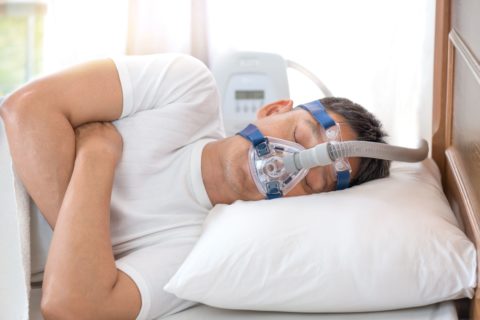An estimated 50-70 million US adults struggle with a sleep disorder, such as snoring and insomnia.
Contrary to the common belief, sleep disorders, or sleep apnea, is not merely a snoring habit. In the most severe cases, sleep apnea can increase the risk of life-threatening conditions such as stroke and even premature death. Sleep apnea occurs when you experience frequent episodes of breathing difficulties while sleeping. The soft tissue in the back of the throat either swells or becomes too slack and cover the airway.
Did you know that a visit to your dentist could help you combat your sleep apnea?
Do I Have A Sleep Disorder?
Knowing the facts about sleep apnea and how to notice the signs and symptoms will go a long way in keeping you happy and healthy (and well rested!). While snoring and frequent restlessness are the most common signs, sleep disorders can include an array of signs and symptoms such as:
- snoring
- waking up choking
- grinding teeth at night
- unintentionally falling asleep in front of the tv or when reading a book
- difficulty with memory or concentration
- mouth breathing
- morning headaches
- history of heart disease or stroke in family, stroke
- insomnia
Health Impacts Of Sleep Disorders
If left untreated, sleep disorders can have negative impacts on your overall health, including:
- high blood pressure
- stroke
- heart failure, irregular heartbeat, and heart attack
- diabetes
- depression
- weight gain
- worsening of ADHD
How Will A Visit To My Dentist Help?
Good quality sleep helps to keep your oral health in check. Bad breath, mouth ulcers, signs of teeth grinding, and development or progression of periodontal disease are all signs of sleep disorders that your dentist is trained to spot during your regular cleaning.
Dentists can offer a variety of ways to help treat sleep apnea. Devices that hold the lower jaw in a forward position to maintain a clear airway but are less bulky and noising compared to traditional CPAP machines are a good alternative. These devices reduce snoring and improve breathing, allowing you to enjoy a full and restful night’s sleep. Your dentist will also consider lifestyle changes. For example, smoking cigarettes, drinking alcohol in excess amounts, or being overweight can increase the risks associated with sleep apnea (and may have other health consequences). In most cases, your dentist will recommend a mix of treatment options to bring back your peace of mind and peace while sleeping.
Here at Loudoun Smile Center, every member of our team wants to make your dental experience a stress-free one. We provide sleep apnea therapy for patients to reduce their health risks and sleep confidently. Ask us about sleep apnea at your next scheduled cleaning!


